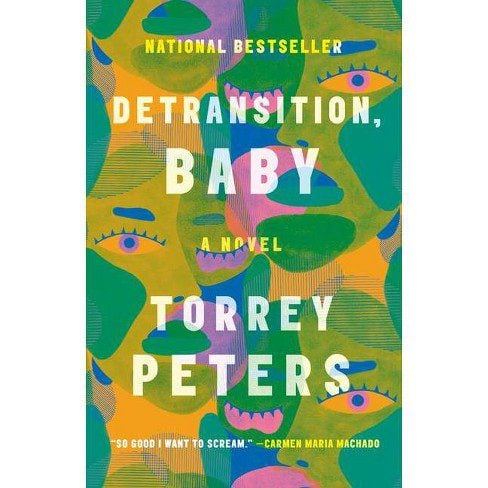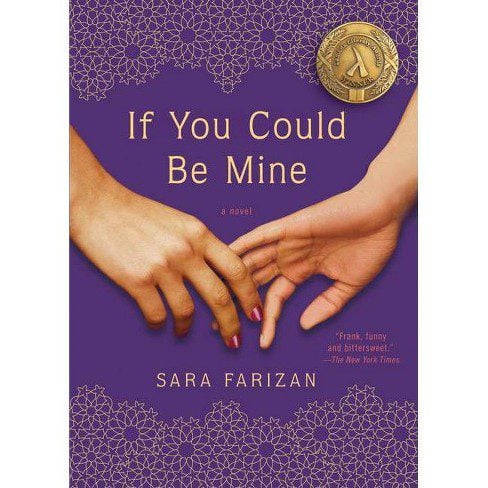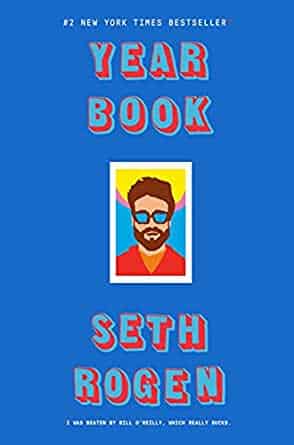Adventurous Kate contains affiliate links. If you make a purchase through these links, I will earn a commission at no extra cost to you. Thanks!
I once took a personality quiz and found out that I thrive with audience-based accountability. If I’m setting out to achieve a goal, I need people to be watching.
That’s how I’ve been with reading. I’ve always been a big reader, but ever since I started documenting everything I read on this site, I kicked it into major overdrive. The stakes are much higher when I know you will be reading my monthly recaps. I had to read more, and I had to read better.
Then what happens when you fall off the wagon?
My reading slowed in August and never recovered, only reading a book or two for each month since. And most of those were audiobooks on long New Hampshire drives.
But you know what? It’s okay. Not every year has to be a knockout reading year. Especially when you’re busy keeping yourself alive during a pandemic. That eats up a lot of energy.
At any rate, I discovered some truly outstanding books this year. Here are my 13 favorite reads of 2021!
My Favorite Novel of 2021: Detransition, Baby by Torrey Peters
“If you are a trans girl who knows many other trans girls, you go to church a lot, because church is where they hold the funerals.”
Torrey Peters, Detransition, Baby
Every now and then you read a book that stuns you with its writing. Every now and then, you read a book that introduces you to a new world. Sometimes you’re lucky enough to read a book that does both — and that’s what Detransition, Baby, did for me this year.
This novel tells the story of Reese, a trans woman yearning to be a mom. Her ex, Amy, recently detransitioned and went back to living as a man: Ames. Meanwhile, Ames has been hooking up with his boss, Katrina — and she becomes pregnant. Ames misses Reese, can’t stomach the idea of being someone’s father, and gets an idea. What if the three of them raise the baby together?
When this book was published, I initially worried — would bigots jump on the chance to say, “See, trans people detransition!” and use that as a weapon? But it’s not like that at all. Ames is a trans woman. He knows he’s a woman. He chose to go back to living as a man because of how badly he was treated by the world when living as Amy.
This novel goes in many different directions — it’s unpredictable until the ending. And it made me care deeply for three women, even as they make mistake after mistake.
Torrey Peters is fantastic and this book should be on every best of 2021 list. I can’t wait to read more of her writing.
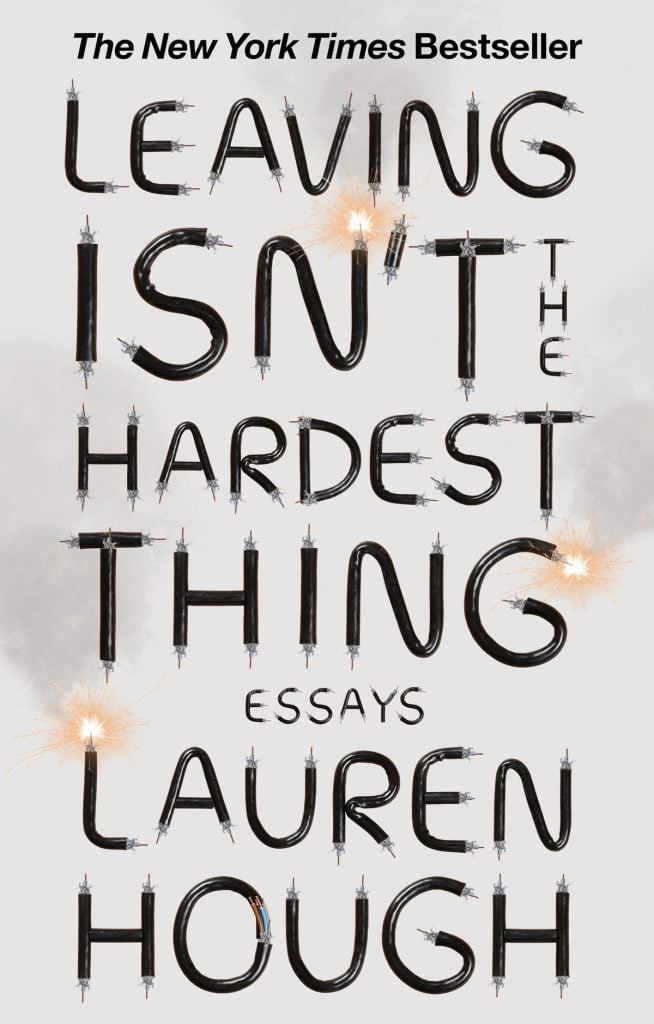
My Favorite Nonfiction Book of 2021: Leaving Isn’t the Hardest Thing by Lauren Hough
“There are few codes held more deeply among the poor, the religious, and the uneducated than that it is good and healthy and wholesome parenting to hit your kids. That their kids grow up with anger-management issues, who like hitting almost as much as they like getting hit, is not taken as evidence that maybe they’re wrong here.”
Lauren Hough, Leaving Isn’t the Hardest Thing
When Lauren Hough published her essay “I Was a Cable Guy. I Saw the Worst of America” in 2018, it lit up the internet like a wildfire. I read it several times that week it came out. Here was a literary voice unlike anything I had ever read, talking about blue collar work, sexism, and Dick Cheney in a completely new way.
It’s no surprise Hough got a book deal off that essay — but that was only the beginning. This essay collection chronicles her unusual life: being raised in the Children of God cult, getting kicked out of the military for being gay, working as a bouncer, a revenge-fueled arrest and stint in solitary confinement, her dabbles in a variety of drugs and women, and living on the edge of the working class. All told in that voice of hers.
Fucking hell, this book. There isn’t a weak essay in the bunch. I wish I could write about my own life half as well as Hough does about hers.
If you want to step into someone’s life for a few hours and marvel at how she reveals it to you — I highly suggest picking this book up. And if you’d rather listen to it as an audiobook, Cate Blanchett actually offered to do the audio!! THEY ARE FRIENDS NOW! How crazy is that?
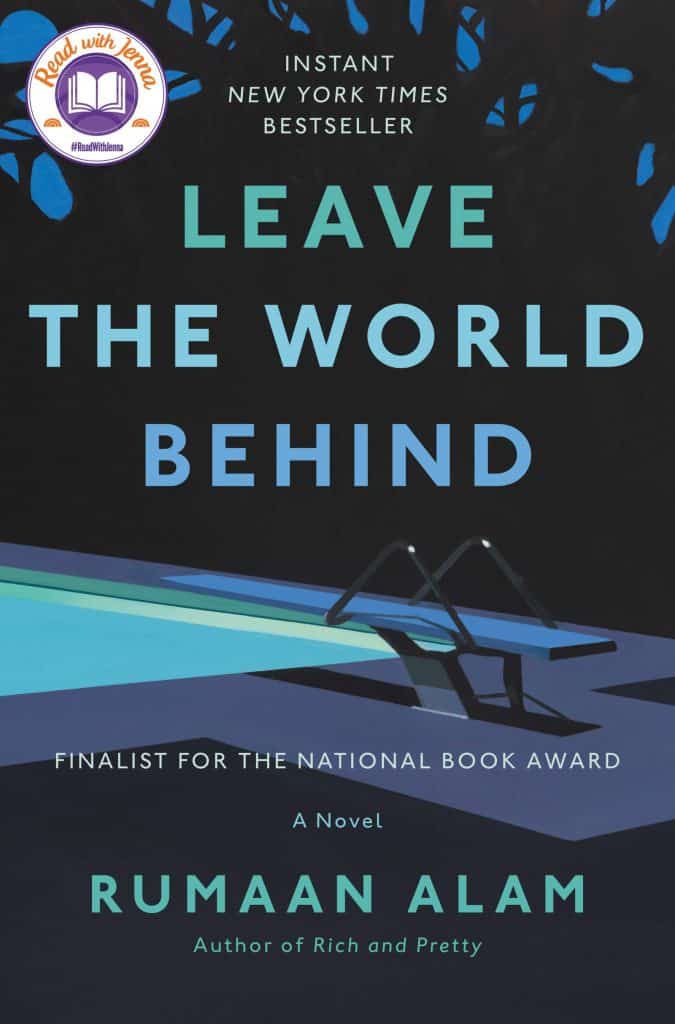
My Favorite Novel Published Prior to 2021: Leave the World Behind by Rumaan Alam (2020)
“‘It’s the right thing to do.’ Clay knew this would work; his wife felt it important, not to do the moral thing, necessarily, but to be the kind of person who would. Morality was vanity, in the end.”
Rumaan Alam, Leave the World Behind
It’s summer, and Brooklyn couple Amanda and Clay have rented a house in a rural part of Long Island for a vacation with their teenage kids. Soon, there’s a knock on the door in the middle of the night: it’s G.H. and Ruth, the older Black couple that owns the house. There was a blackout in New York and they decided to come here to wait it out.
At first it seems like it’s a story of class, race, and a relationship between two very different New York couples. But soon, they learn that this is far more than just a blackout. Something bad has happened. And because there’s no internet, they can only guess.
This is one of the most haunting books I have ever read in my life. Scary in a realistic way. It’s a lot like The Road for that reason, but while I hated The Road with a passion for how much it scared me, this book I might actually read again.
Perhaps it’s the juxtaposition of the luxurious home, the delicious relaxation of summer, Alam’s sumptuous descriptions of every texture in that house, contrasted with the slow-burning catastrophe, and the omniscient narrator who drops “Little did they know” tidbits of inconceivable horrors taking place simultaneously.
This book was fantastic. I’m glad I read it. But you need to be in a good place before you read it. I could see this ruining your week if you weren’t. Go in with caution.
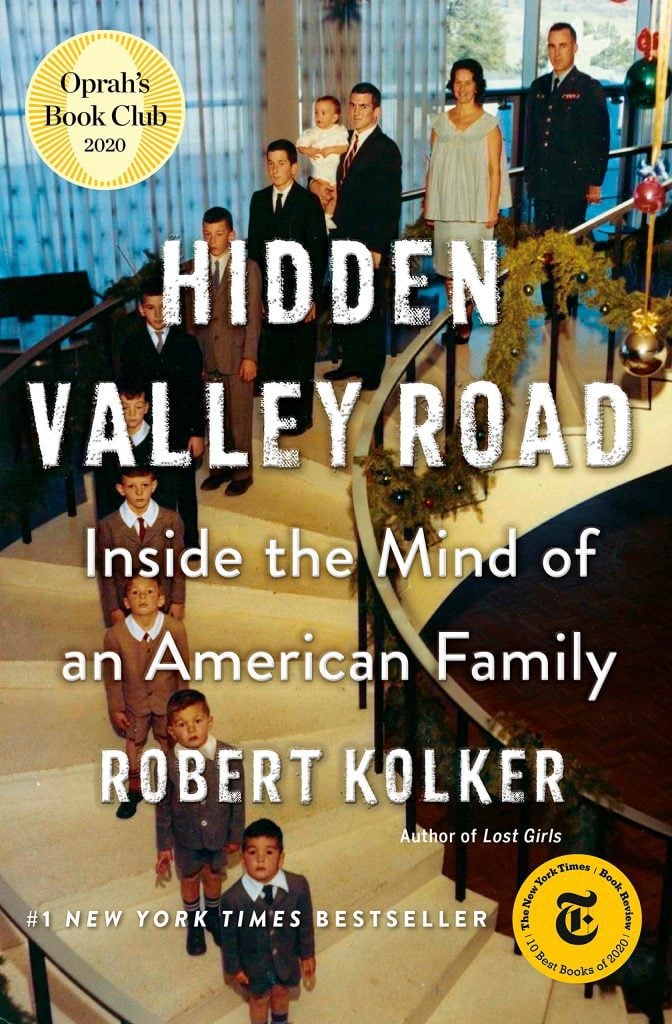
My Favorite Nonfiction Book Published Prior to 2021: Hidden Valley Road: Inside the Mind of an American Family by Robert Kolker (2020)
“For a family, schizophrenia is, primarily, a felt experience, as if the foundation of the family is permanently tilted in the direction of the sick family member. Even if just one child has schizophrenia, everything about the internal logic of that family changes.”
Robert Kolker, Hidden Valley Road
Mimi and Don Galvin were living the post-WWII American dream. They moved to Colorado and welcomed twelve kids: the first in 1945, the last in 1965, bookending the baby boom. Don worked, Mimi stayed home, the kids went to school, they all went to church.
But behind the scenes, there was violence, psychotic breaks, and abuse. By the mid-1970s, six of the 10 Galvin boys had been diagnosed with schizophrenia.
This book tells the story of a family trying to hang on as their lives were swallowed into despair — and the story of the doctors and scientists who used the Galvin family to find genetic markers for schizophrenia.
In some ways, this book was a horror story. In other ways, it tore me up until I cried. How could a single family bear so much pain? How much did it feel like a curse, waiting with bated breath to see if another child would break down in adolescence? How impossible was it to get treatment in the 1970s, when mental healthcare was so primitive compared to what we have today?
And how did you reconcile being a person of strong faith, and having horror after horror unleashed upon you, when you felt like you had done everything right?
This is a story I will never forget. On top of that, Kolker’s writing is musical. You can tell how he came up with the title — the house was on Hidden Valley Road, and every time he says those words, it’s like a return to the refrain.
If You Could Be Mine by Sara Farizan (2014)
“‘Does it go away?’ she asks. ‘Missing each other?’ I think about how much I missed Maman. I still do, though it isn’t as acute as it once was. ‘A little bit,’ I whisper. ‘Enough so that life continues.'”
Sara Farizan, If You Could Be Mine
Every now and then, I like to read a romance that hurts so good. This one fits the bill and keeps you aching long afterward.
Sahar and Nasrin are two teenage girls in love. But they live in Iran — where being gay is punishable by death. When Nasrin’s parents arrange her engagement to a man, Sahar desperately looks for a solution to keep her girlfriend — and learns that gender confirmation surgery is both legal and paid for the government. This would be a way for her to keep Nasrin, but at what cost?
Holy hell. I had NO IDEA that Iran fully supported gender confirmation surgery! They consider it fixing a “mistake.” And Sahar quickly learns that she is way in over her head as the days tick down to Nasrin’s wedding. The teenagers in this book actually act like teenagers, rather than mini adults.
But this book opened my eyes to a completely different world — including the queer underworld of Tehran that exists in the shadows, with parties, secret meeting spaces, and payoffs to the police. It was a fascinating read.
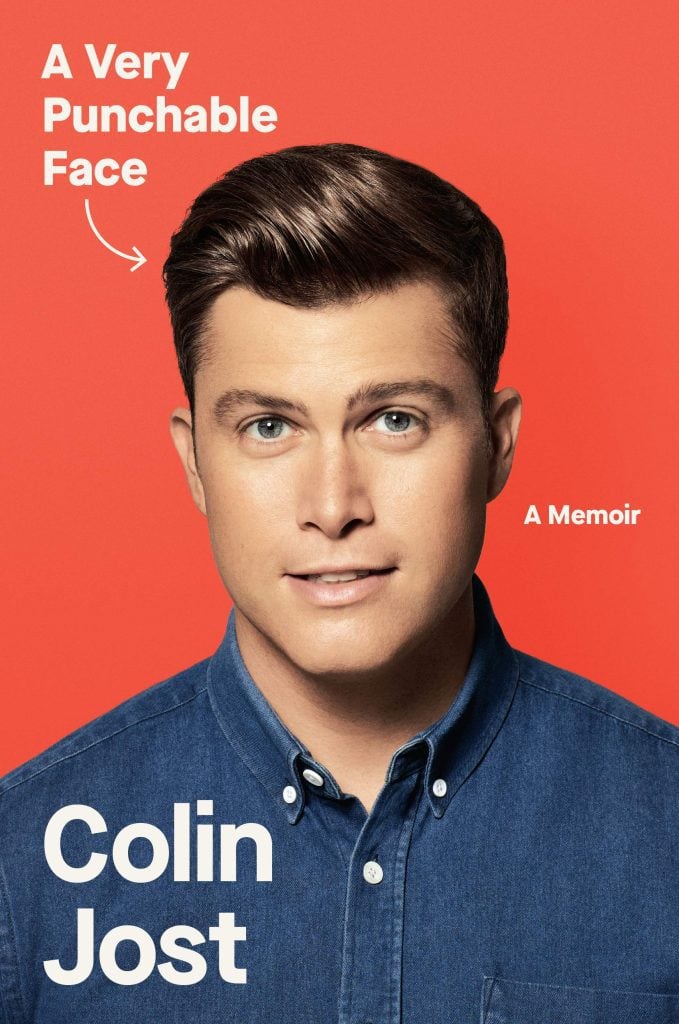
A Very Punchable Face: A Memoir by Colin Jost (2020)
“When President William Howard Taft was campaigning for office, someone threw a cabbage at him, and he quipped, ‘I see one of my adversaries has lost his head.’ BAM! You just got Taft-ed. Take a seat, cabbage head.”
Colin Jost, A Very Punchable Face
One of my favorite book genres is work memoirs. I love diving in to how leaders started from scratch and rose to the top of their profession. The latest is by Colin Jost, who discovered comedy writing as a college student, make it the focus of his life ever since, and became head writer of SNL.
And this is what you’d expect from a leading comedy writer! Every line is tightly crafted for maximum laughs. I haven’t seen each word so meticulously chosen since Patricia Lockwood’s Priestdaddy. It’s several levels above the usual comedy memoir.
I’m also a huge SNL fan, and I love all the book’s SNL tidbits — but I also appreciate how Jost chooses to present himself. He knows he’s a good-looking, intelligent, rich, hilarious guy, and so he has the SNL cast mock him whenever possible. It’s punching up. And he carries that over into this memoir, which is self-deprecating in all the right ways.
The chapters are funny memories of his, from growing up in Staten Island to getting a strange tropical illness to agreeing to participate in WrestleMania. But the best chapter is actually the one where he tells zero jokes: telling the story of his mother, who was chief medical officer of the FDNY on 9/11 and barely escaped the towers’ collapse.
I listened to this on audio — a great decision — and I kept laughing my ass off, stopping it, and playing selections for my boyfriend. If you need to laugh for a few hours, this is a great choice!
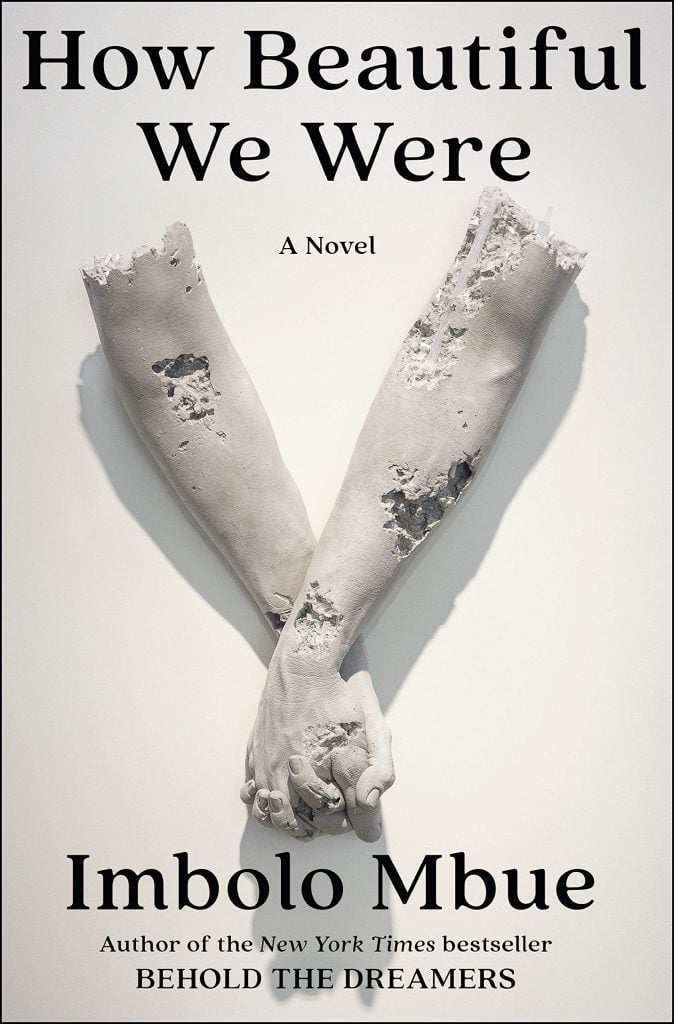
How Beautiful We Were by Imbolo Mbue (2021)
“Someday, when you’re old, you’ll see that the ones who came to kill us and the ones who’ll run to save us are the same. No matter their pretenses, they all arrive here believing they have the power to take from us or give to us whatever will satisfy their endless wants.”
Imbolo Mbue, How Beautiful We Were
What happens to a small community that is exploited by greedy foreigners? This is the story of Kosawa, a village in Africa that is targeted by an oil company. Over the years, the villagers’ children begin falling ill and dying due to tainted water. What would it take for them to stop? What would it take for the world to start paying attention?
And what if you find yourself in a position of power in this community? That would be Thula, the character who gets a scholarship to university in the United States, connects with revolutionary groups, and begins arming herself and her classmates for a takeover.
God, what an intense and heartbreaking book this was. It shows how even when you have the strongest chance possible, it’s not enough when going against a powerful company and an international government.
But I loved how this story focused on different characters over the course of generations, focusing on how the tragedy affected their lives long-term.
I also enjoyed how this book had separate sections telling the story from different characters, but unlike most books that switch back and forth, each character had their own lengthy section, and then it was over.
A moving novel that I won’t forget anytime soon.
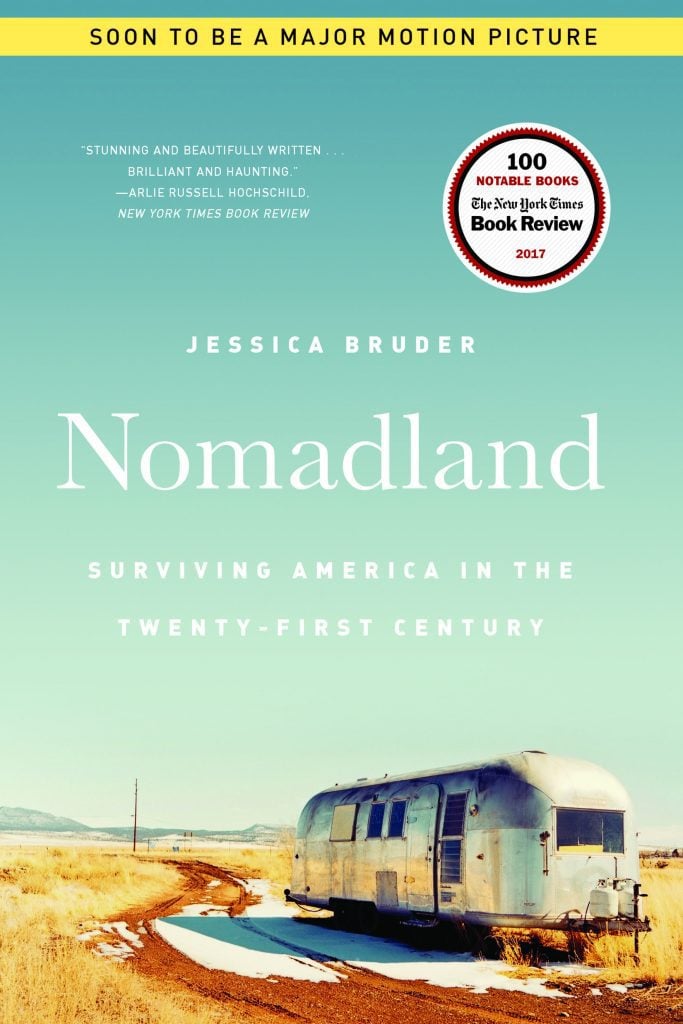
Nomadland: Surviving America in the Twenty-First Century by Jessica Bruder (2018)
“America is the wealthiest nation on Earth, but its people are mainly poor, and poor Americans are urged to hate themselves . . . Every other nation has folk traditions of men who were poor but extremely wise and virtuous, and therefore more estimable than anyone with power and gold. No such tales are told by the American poor. They mock themselves and glorify their betters.”
Jessica Bruder, Nomadland
Across the wide spaces of the United States, companies have discovered a new low-cost work force: older Americans who live permanently in vans and RVs. They can’t afford to retire. They can barely afford to live in their homes. Instead, they travel across the country, harvesting sugar beets in North Dakota, campground hosting in California, working for Amazon in Nevada.
I wanted to read the book before the movie came out, and it was a gut punch. How have we Americans failed our own people repeatedly? How is this the best viable option for older folks, who should be relaxing and enjoying themselves in retirement? How do we fight the greediest aspects of capitalism? President Warren, you could have been so good!!!
If you’ve seen the movie, you should read the book as well. It goes so deeper and covers many more issues — particularly Amazon. It looks like Amazon signed off on the movie because they were mentioned by name, and I’m sure that’s why nothing bad is said about them, but the book talks about Amazon’s horrible working conditions.
The fact that Amazon specifically swooped in and created “camperforce” to exploit this community of low-income older people in need of work, then gave them jobs that are so taxing on older bodies (all bodies, really) — they just keep hitting new levels of depravity.
This is a much-needed glimpse into an emerging community dealing with the same problem as the rest of the country: economic inequality. We need help.
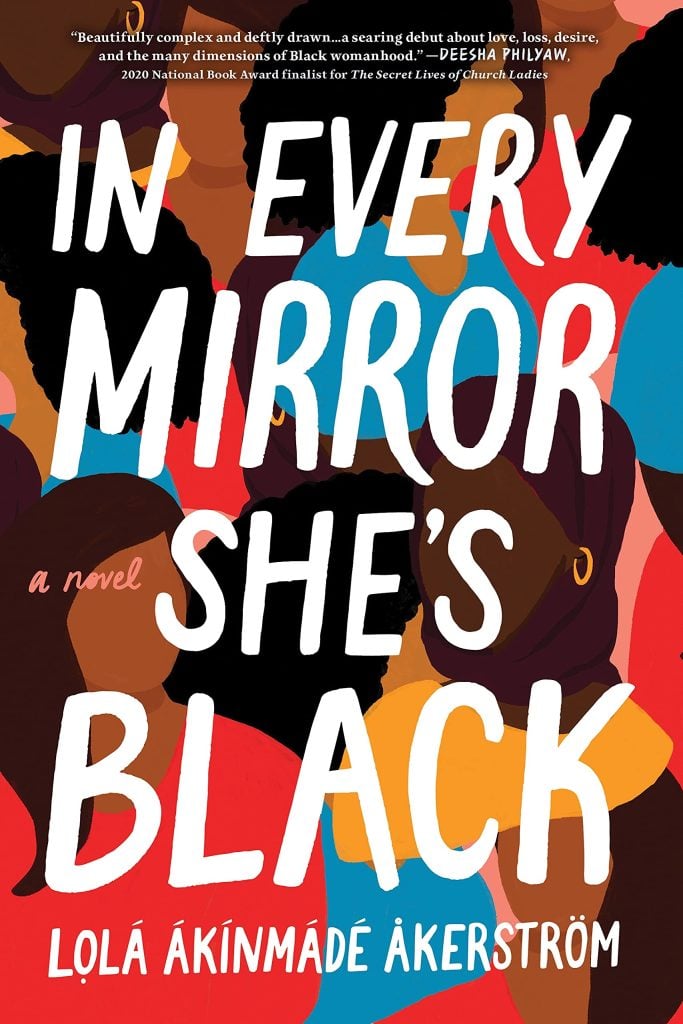
In Every Mirror She’s Black by Lola Akinmade Åkerström (2021)
“He had no intention of making a purchase. He was one of those men who wanted to steal into the fridge at night to binge while everyone was asleep, only to return to their diets—their wives—come morning.”
Lola Akinmade Åkerström, In Every Mirror She’s Black
How often is Sweden held up as the idea of a progressive utopia? A place where parental leave is generous, healthcare is free, afternoon coffee breaks are a sacred rite, and everyone seems to bit fit and gorgeous?
The real Sweden? A starkly classist society. In Stockholm, one of the most common first questions to ask someone is where they live — so you can instantly assign them a role. And an insular, racist country, where outsiders are viewed with suspicion and Black women face hostility.
This novel tells the story of three Black women living in Stockholm, all connected to the same man: Kemi, a Nigerian American hired to do damage control after a marketing firm’s racism scandal; Brittany, a Jamaican American flight attendant who finds herself romantically ensnared with a top Stockholm business leader; and Muna, a teenage Somali refugee trying to build a new life in Sweden after losing her family.
These are characters that you grow to care about deeply, even as they make mistake after mistake. And thanks to Åkerström’s travel writing background, Stockholm is rendered so clearly, existing as a character itself alongside the women.
We had the author join us for a book club discussion, and she told us that some people in publishing thought the book was too commercial for literary fiction and too literary for commercial fiction. Those may have been challenges for the marketing department — but I think it’s a great thing for the reader.
If you lean more toward commercial fiction, this will show you a point of view you haven’t seen before. If you lean more toward literary fiction, you’ll find it to be a bingeable read, one you can’t wait to finish.
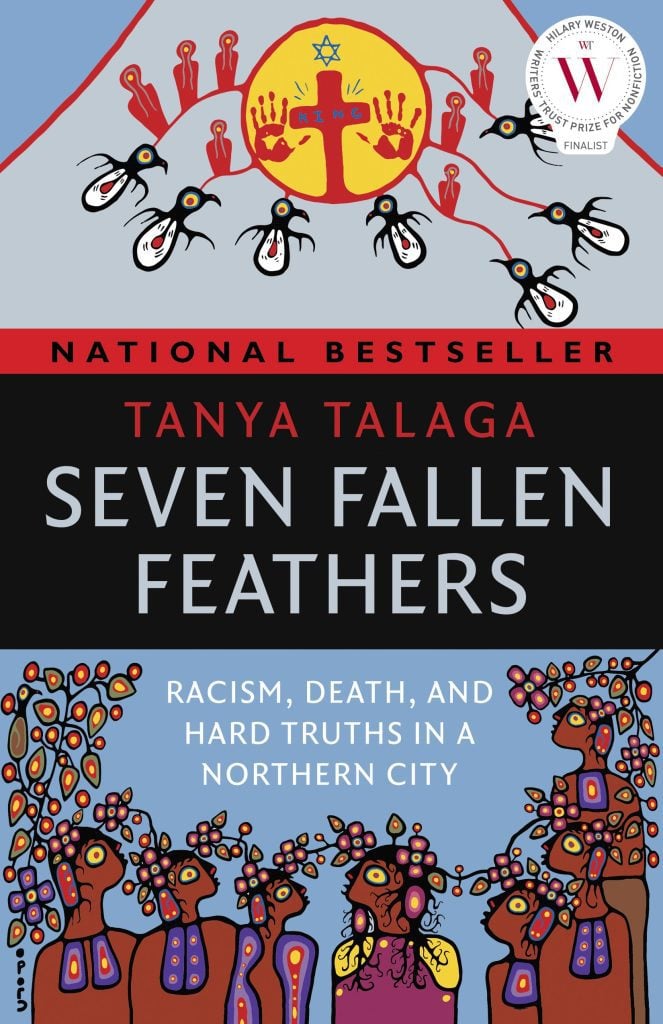
Seven Fallen Feathers: Racism, Death, and Hard Truths in a Northern City by Tanya Talaga (2017)
“We need to be certain that evil doesn’t exist and one way to deny it didn’t happen is to declare them accidents.”
Tanya Talaga, Seven Fallen Feathers
Tell me — what do you know about Thunder Bay, Ontario? This city is relatively isolated, cold and gray for much of the year, with a population of around 110,000. This city is also home to many young Indigenous Canadians from rural communities who come to Thunder Bay to attend high school.
Between 2000 and 2011, seven Indigenous students died in Thunder Bay. Many of their deaths were ruled as accidental drownings, even though many of them were strong swimmers. Finally an inquest began after the seventh death.
This book is a deep investigation into what these teenagers faced. Many of them were away from home for the first time, living in a city for the first time, having foster parents, fending off racist attacks on the streets. This is simply the latest incarnation of what Indigenous students face in Canada, with generations of abuse-rampant residential schools before that.
This is a subject I knew nothing about, and though I found it devastating to read, it’s a searing indictment of education and Indigenous communities in Canada. It’s a sobering read and I highly recommend it.
Yearbook by Seth Rogen (2021)
“Never quit, but sometimes do quit, ’cause you simply might not be that good at some shit.”
Seth Rogen, Yearbook
Would you enjoy Seth Rogen telling stories for hours? Then you have a pretty good idea whether you’d enjoy this book! Yearbook is Rogen’s memoir, telling stories about his childhood, coming up in the comedy world, and making it in Hollywood. Yes, weed figures prominently.
I highly recommend listening to this as an audiobook, because it’s the best-produced audiobook I’ve ever listened to. When a scene takes place at a restaurant, you hear people murmuring and glasses clinking in the background.
OH, and there are a ton of different voice actors. Nick Kroll. Dan Aykroyd. Billy Idol. Jay Pharaoh as Kanye West. Snoop Dogg as himself! Sacha Baron Cohen as himself! And his wife and parents as themselves, too!
I read this book and Colin Jost’s book close together, and they’re very different. Jost’s memoir is tightly written, punchline-a-minute comedy writing. Rogen’s is looser, messier, more organic. Both are great, but they’re very different approaches to a comedy memoir.
If you need something relaxing, something that feels like hanging out with a good friend, I think you’ll enjoy this one.
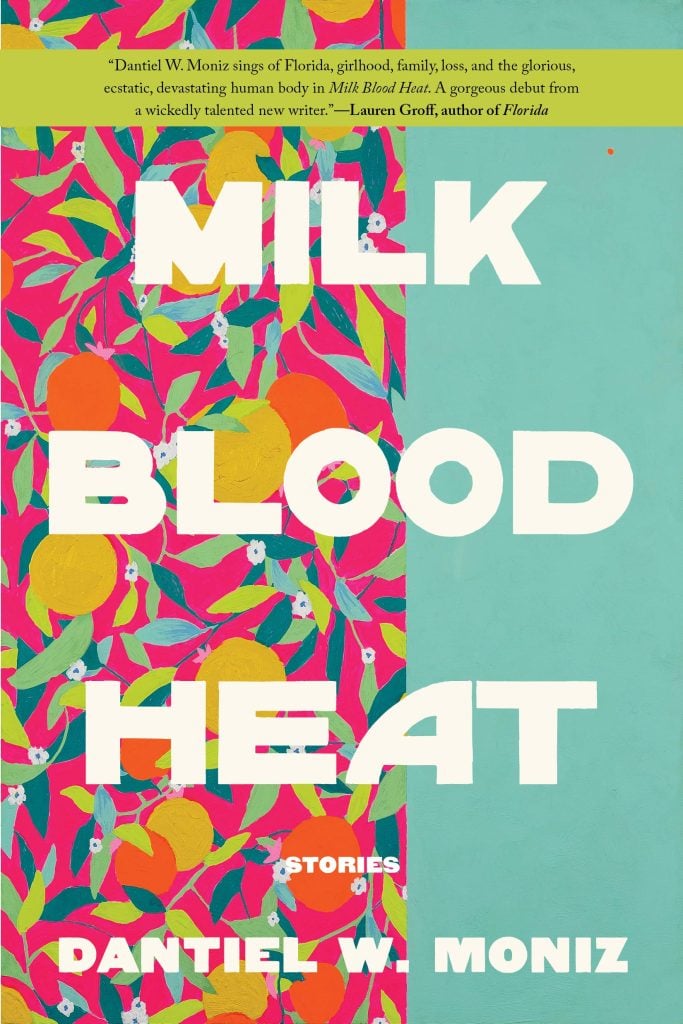
Milk, Blood, Heat by Dantiel W. Moniz (2021)
“She wishes she could ask her parents if it’s better to be a sinner or a prisoner, but she knows that her mother is afraid of truth and her father wouldn’t recognize it, even if it invited him inside, offered fresh fruit.”
Dantiel W. Moniz, Milk, Blood, Heat
What a perfect name for a short story collection based in Florida. Far more than just a punch line of a state, Moniz leans into the dark, mysterious side of Florida, where secrets curl like wrought iron through the humid air.
The characters in these stories are Black and brown women who have survived the worst and must know draw on every bit of emotional strength they have. Whether it’s a mother who discovers her daughter is being groomed by her teacher to a 13-year-old who lives after her best friend’s sudden death, every character in this collection is drawn well in few strokes.
I love Moniz’s voice and want to spend more time with her characters, even with so many of them being off-putting. I hope she puts out a full-length novel next.
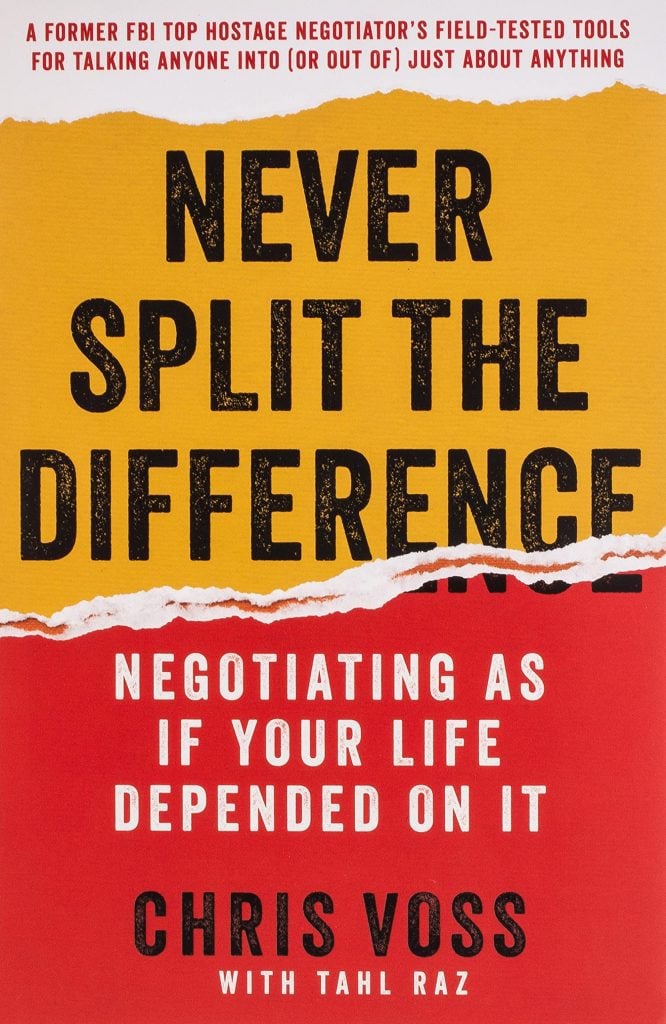
Never Split the Difference: Negotiating As If Your Life Depended on It by Chris Voss with Tahl Raz (2016)
“Persuasion is not about how bright or smooth or forceful you are. It’s about the other party convincing themselves that the solution you want is their own idea. So don’t beat them with logic or brute force. Ask them questions that open paths to your goals. It’s not about you.”
Chris Voss, Never Split the Difference
This is the most useful book I read all year. Everything in life is about negotiation — EVERYTHING, from dealing with loved ones to working at your job to buying a house or car. And most of us have no idea how to negotiate effectively.
Chris Voss was the FBI’s lead hostage negotiator. His negotiations were very high stakes — including international kidnappings and hostage crises. And while I’m sure he cherry-picked the best of the bunch, he showed several instances when he got EXACTLY what I want and barely had to give anything in return.
Like a kidnapping in Haiti that originally asked for $50,000 ransom, then he realized the kidnappers just wanted a party weekend, so they ended up negotiating it down to a few hundred dollars. Crazy stuff!!
A lot of the tips are simple — like mirroring — but when used all together, they can pay off enormously. It’s all about subtly convincing another person that they are getting what THEY want.
I’ve already used some of the tips in real life and they’ve paid off. I did a few monetary negotiations later in the year (not work stuff, but more like refunds and settlements), and I ended up negotiating myself much larger amounts of money than I was originally offered.
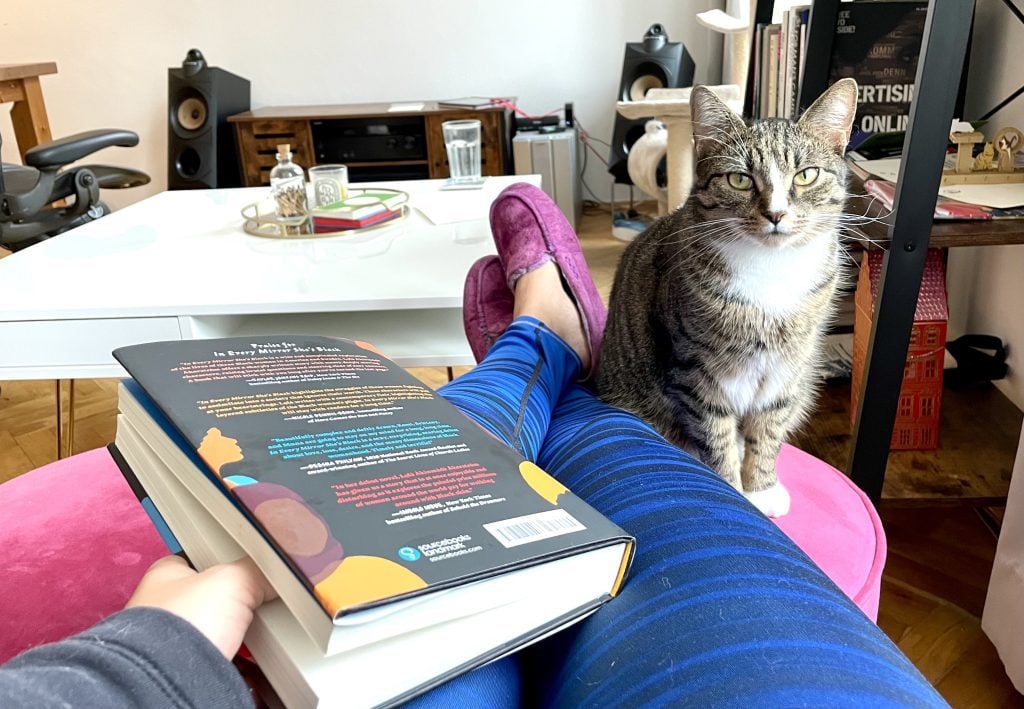
Short Cuts
Some other books that nearly made the best of the year list: Meet the Frugalwoods by Elizabeth Willard Thames modeled financial independence and frugality in a way I strongly related to. The Other Black Girl by Zakiya Dalila Harris was a wonderfully creepy social thriller that I couldn’t put down.
The Push by Audrey Audrain was a delicious story of parenthood gone wrong — but was too derivative of Lionel Shriver’s We Need to Talk About Kevin, in my opinion. Concrete Rose by Angie Thomas was a worthy prequel to The Hate U Give, and a deep, empathetic dive into Starr’s father as a teenager.
Business-wise, Profit First by Mike Michalowicz was basically a blog post stretched into 300 pages, but it was an absolute game-changer for my business. It teaches you steadiness and financial boundaries. And I love disbursing myself profits at the end of the quarter that I am NOT allowed to use on the business! Between that and YNAB, my business finances are like a well-oiled machine.
My least favorite book of the year was The Year of Magical Thinking by Joan Didion. I have NO IDEA why this book won so many awards. I’m deeply sorry for Didion’s losses, but I found her voice insufferable and her name-dropping cringeworthy.
Now I’d like to hear from you.
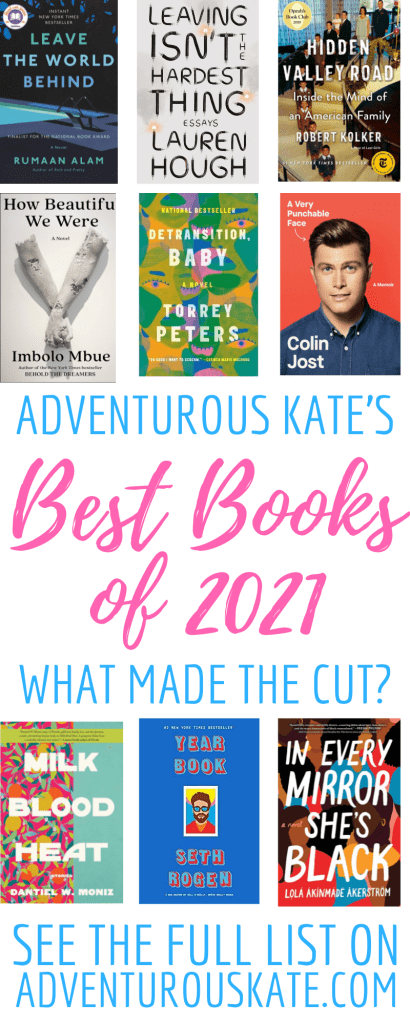
What was your favorite book of 2021?
